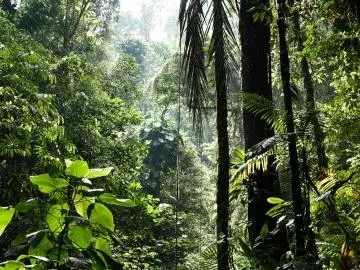What Progress Will Be Reviewed at the 2026 UN Biodiversity Summit?

Synopsis
Key Takeaways
- Delegates from 196 parties are discussing biodiversity loss in Panama City.
- The Kunming-Montreal Global Biodiversity Framework aims to halt biodiversity decline by 2030.
- The meeting includes participation from indigenous peoples and local communities.
- A global report on progress will be prepared for the 2026 UN Biodiversity Conference.
- The CBD is a legally binding treaty established to promote biodiversity conservation.
New Delhi, Oct 19 (NationPress) Delegates from 196 parties to the Convention on Biological Diversity (CBD) will convene in Panama City for two crucial meetings from Monday until October 30. The first session, referred to as SBSTTA-27, aims to prepare the inaugural global assessment of progress in executing the Kunming-Montreal Global Biodiversity Framework (KMGBF), a landmark agreement designed to stop and reverse biodiversity decline, built around 23 action targets that were unanimously endorsed by the parties in 2022.
To ensure the world can thrive in harmony with nature, these targets need to be met by 2030, as envisioned in the KMGBF.
The second meeting, SB8J-1, will witness the Subsidiary Body on Article 8(j) and other provisions of the Convention gathering for the first time. This marks a pivotal moment for indigenous peoples and local communities, who are essential guardians of biodiversity and play a crucial role in combating its loss, which is vital for all life on Earth.
These two meetings will assemble representatives from governments, indigenous communities, scientists, and civil society, including youth and women's groups, to lay the groundwork for the upcoming 2026 UN Biodiversity Conference (COP17) in Yerevan, Armenia, aiming for the 23 goals of the KMGBF by 2030.
During the SBSTTA-27 session, the draft outline of the first Global Report of Progress will be reviewed, which is a significant contribution to COP17 and will be further assessed at COP19 in 2030.
“This global evaluation is a crucial checkpoint for our planet,” stated CBD Executive Secretary Astrid Schomaker. “Healthy, biodiverse ecosystems are the foundation of human existence, influencing food, water, medicine, and climate stability. This review will determine our progress and highlight areas where we must intensify efforts to fulfill our commitments to protect Earth's life-support systems,” Schomaker added.
An advisory committee has created a detailed outline for the global report on collective achievements in implementing the framework.
This outline serves as a roadmap for evaluating progress, consolidating diverse information sources, and guiding decisions during the convention.
The forthcoming global report will incorporate national updates from each party, expected by February 2026, alongside data from NBSAPs, national objectives, and the most reliable scientific evidence available.
The Convention on Biological Diversity (CBD) is a multilateral treaty established in 1992 that advocates for biodiversity conservation, sustainable use of its elements, and equitable sharing of benefits derived from genetic resources. It is a legally binding agreement with three core objectives and is pivotal for sustainable development. The convention's Secretariat is located in Montreal, Canada.









